Saudi Arabia will applaud President Trump for not certifying Iranian compliance with the Iran nuclear deal. The kingdom will be even more pleased if Congress votes for new sanctions on Iran. While Riyadh would welcome broad international cooperation to isolate Tehran, it will settle for Washington going alone. But it expects Trump to deliver much more than symbols.
The Saudis largely kept to the sidelines during the 2015 debate about the Joint Comprehensive Plan of Action (JCPOA), letting others lead the charge against the deal. The Saudis were constrained by their need for U.S. and U.K. military support for the war in Yemen, which they had just begun. The then-new King Salman and his ambitious son Prince Muhammad bin Salman had hurriedly embarked on Operation Decisive Storm to prevent Houthi rebels aligned with Iran from taking over all of Yemen. They expected a quick victory, but needed American and British supplies for their air forces. President Obama provided the support and got the Saudis to stand aside, for the most part, on the JCPOA debate. Yemen, for its part, got a humanitarian catastrophe and a seemingly endless war.
King Salman enthusiastically greeted Trump’s promise to take a harder line than Obama on Iran. The Saudi crown summoned Islamic leaders to a summit in Riyadh in May to endorse casting Iran as the leader of terror, subversion, and mischief in the region. Now the Saudis are looking for Trump to deliver. Their Gulf allies, Bahrain and the United Arab Emirates, are just as enthusiastic.
The Saudi animus toward Iran has deep roots in the Kingdom’s Wahhabi Islam. Muhammad Ibn abd al Wahhab was a fervent opponent of Shiism from the beginning of his preaching career in the 1730s. One of the Kingdom’s earliest military triumphs was the sacking of the Shiite holy city of Karbala in Iraq. The Shiite community inside Saudi Arabia has been oppressed since Ibn Saud incorporated it into the Saudi kingdom more than a century ago. There remains significant violent resistance to Saudi authority in the Eastern Province, where Shiites are located.
Saudi foreign policy has long made cultivating Sunni opposition to Shiite Iranian influence a high priority. One illuminating example came in August 1990 after the Iraqi invasion of Kuwait. Then-Saudi ambassador to Washington Prince Bandar bin Sultan visited Moscow to rally Russian support against its longtime ally Iraq. Bandar not only secured Soviet backing in the United Nations Security Council against Saddam, he also persuaded Moscow to allow the kingdom to ship over a million Saudi-produced Qurans to Soviet Central Asia to promote Sunni unity among Muslims in the Caucasus and Central Asia against Shiite entreaties from Iran. So at a time when the kingdom’s survival was at stake, it still found time to promote the jihad against Iran and Shiism.
King Salman has brought the struggle against Iran to an unprecedented intensity. Diplomatic relations have been severed following the executions of Shiite dissidents in the kingdom. The war in Yemen is promoted as a battle against Iranian proxies despite the very loose connections between the Houthis and Tehran. Rather than driving the two apart, the war is pushing Sanaa closer to Tehran.
The king is playing a more subtle hand in Iraq. After decades of neglect, the Saudis have begun courting Iraqi politicians, including Shiites. Riyadh is opening a consulate in Najaf. The goal is to offer the Iraqis an alternative to Iran. The U.S. administration is working with the Saudis in Iraq.
For Saudi Arabia, the nuclear deal has always been a distraction from the main point of their concerns: Iranian and Shiite meddling in the Sunni and Arab world. The Saudis are worried about Iran’s nuclear program, but they prefer Iran be a pariah to the JCPOA’s lifting of sanctions. If the Trump administration and Congress goad Iran into abandoning the agreement and resuming its nuclear weapons program, then Saudi Arabia will be eager to see U.N. sanctions resumed and Iran threatened with American military intervention.
Saudi policy lacks a coherent end game. Even regime change in Iran is unlikely to satisfy the Saudi deep unease with Shiism. Riyadh’s unstated preference is perpetual isolation for Iran. The Saudis did not trust the Shah, whom they thought was seeking hegemony over the Persian Gulf. But King Faysal was prepared to collaborate with the Shah in the 1960s and 1970s on joint pan-Islamic causes. King Abdullah sought to deescalate tensions in the 1990s and even sent a Saudi Shiite ambassador to Tehran. Salman is much more inclined toward confrontation, however, and will expect Trump to live up to his promises.
But the Saudis may be disappointed. Trump is extremely mercurial and may lose interest in the Iran challenge once he can claim he has fulfilled his promise to trash the “embarrassment” of Obama’s nuclear deal. His cabinet is full of Iran hardliners, but most are realistic about the dangers of conflict with Tehran. Secretaries Mattis and Tillerson resisted the Saudis on punishing Qatar and have been openly skeptical about JCPOA de-certification.
Much depends on how Iran responds to Trump. The Saudis baited Iran by executing the Shiite dissidents and Tehran fell for the bait, turning a blind eye to violent protests at Saudi diplomatic posts. The Saudis orchestrated a wave of broken relations by their allies. They are hoping Iran will fall into a trap again.
The Brookings Institution is committed to quality, independence, and impact.
We are supported by a diverse array of funders. In line with our values and policies, each Brookings publication represents the sole views of its author(s).

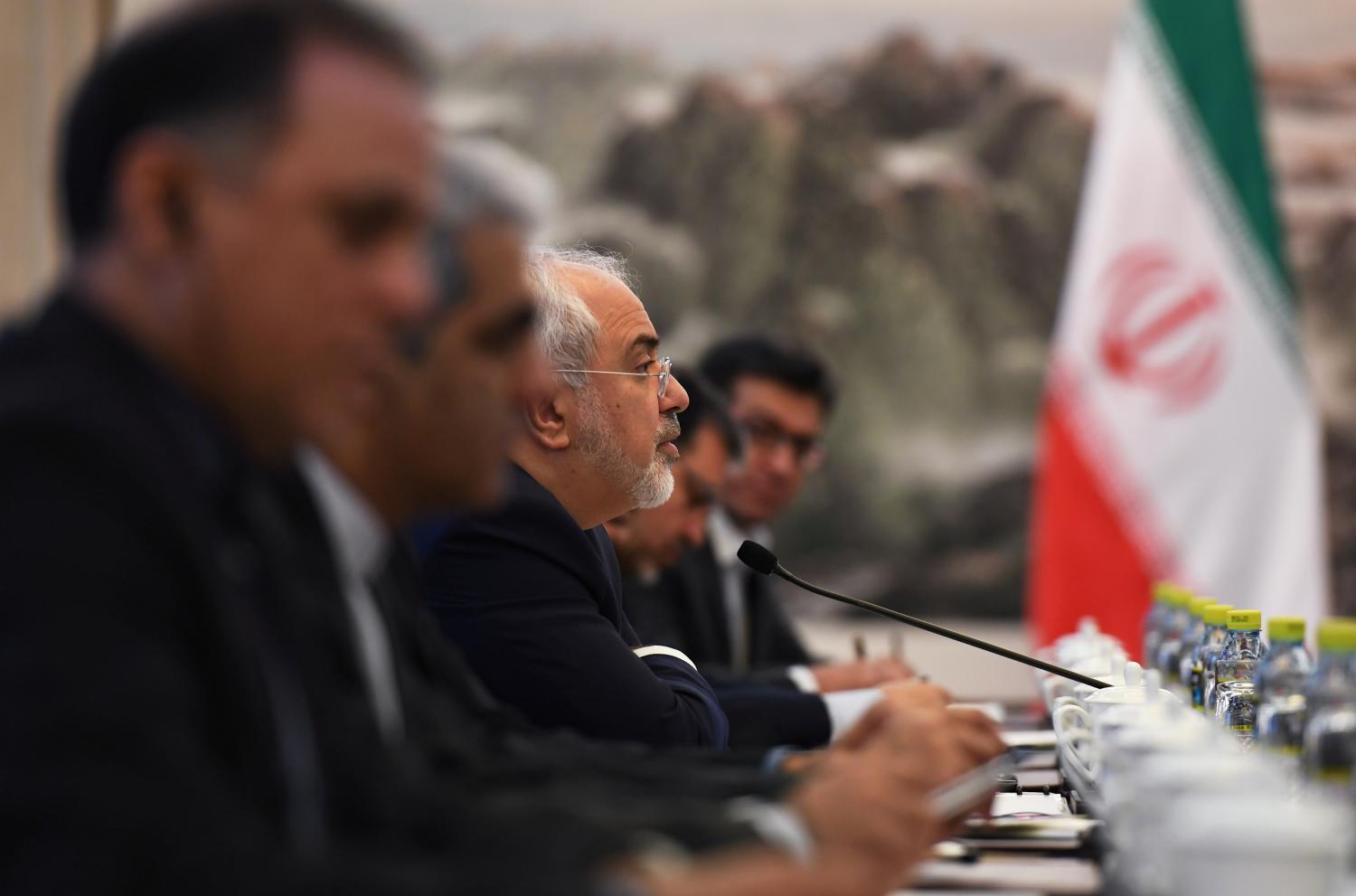
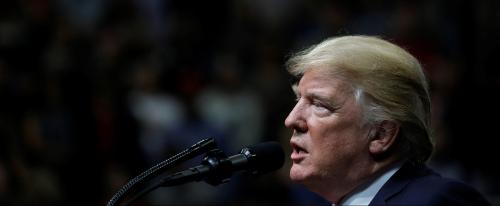
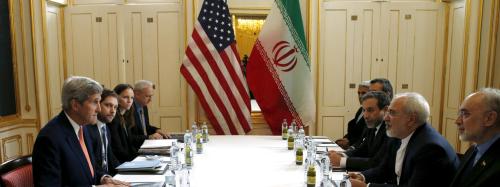
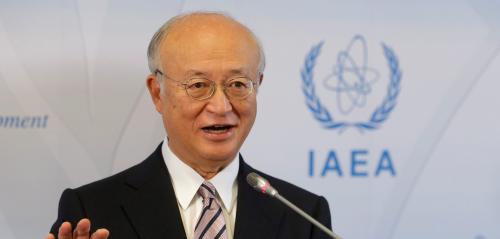


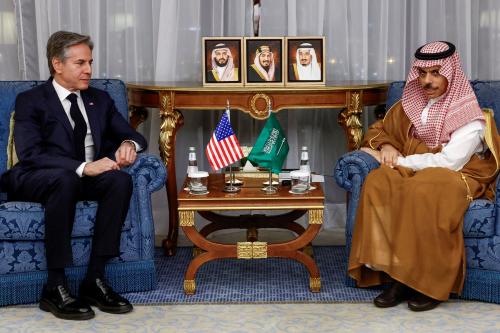

Commentary
Why the Saudis would cheer the de-certification of the Iran deal
October 11, 2017